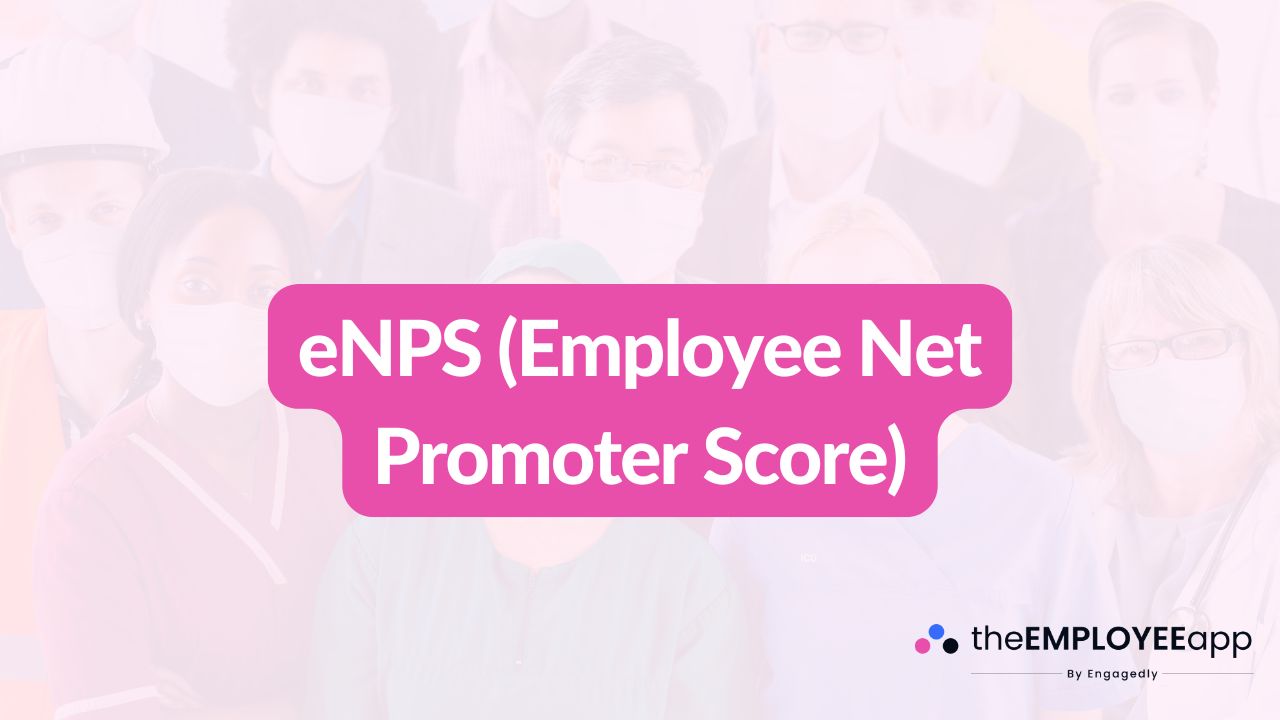
Every organization wants engaged employees who feel motivated, valued, and loyal. But how do you measure something as complex as employee sentiment in a way that’s simple, trackable, and actionable? That’s where eNPS (Employee Net Promoter Score) comes in.
eNPS is one of the most widely used methods for measuring employee loyalty and engagement. It borrows its format from the traditional Net Promoter Score used in customer experience, but instead of asking customers if they’d recommend a company, it asks employees if they’d recommend their workplace as a great place to work.
Let’s break it down in detail.
eNPS is a simple survey metric that helps organizations gauge how likely employees are to recommend their employer to friends or family. The classic eNPS question looks like this:
“On a scale of 0 to 10, how likely are you to recommend this company as a place to work?”
Based on their responses, employees are divided into three categories:
Promoters (9–10): Highly engaged employees who are loyal and enthusiastic about the workplace.
Passives (7–8): Satisfied but not strongly engaged. They could be swayed by better opportunities elsewhere.
Detractors (0–6): Unhappy employees who may spread negative feedback or be at risk of leaving.
The eNPS score is calculated by subtracting the percentage of detractors from the percentage of promoters. The result can range from -100 to +100.
eNPS is more than just a number—it’s an insight into your organizational culture. Here’s why it matters:
Simple and quick: Unlike long engagement surveys, eNPS is easy to run and doesn’t burden employees.
Provides a pulse check: It highlights how employees feel about the organization at any given time.
Identifies risks early: Low scores can signal issues like poor communication, lack of recognition, or misaligned leadership.
Improves retention: When you act on eNPS insights, employees see that their voices matter—leading to higher loyalty.
Benchmarks progress: Tracking eNPS over time helps you measure whether engagement initiatives are working.
While scores vary by industry, here’s a general benchmark:
Above +50: Excellent—your culture is strong and employees are advocates.
+10 to +30: Healthy—room for growth but trending positive.
Below 0: Concerning—many employees may be disengaged or unhappy.
The key isn’t just the number itself, but the trends over time and the actions you take based on the feedback.
Improving eNPS means creating an environment where employees feel valued, supported, and motivated. Some strategies include:
Strengthen communication: Transparent, two-way communication builds trust and reduces uncertainty.
Recognize contributions: Recognition programs show employees that their efforts matter.
Focus on leadership development: Employees often leave managers, not companies—invest in leadership training.
Provide growth opportunities: Offer learning, development, and career progression to keep employees engaged.
Act on feedback quickly: Employees want to see that their input leads to real change.
While eNPS is a quick snapshot, employee engagement surveys are deeper and more detailed. The two work best together: eNPS gives you the high-level signal, and engagement surveys provide the “why” behind the score. Organizations that use both get the most actionable insights.
eNPS (Employee Net Promoter Score) is one of the simplest and most effective ways to understand how your employees feel about your organization. It provides a clear number that reflects employee loyalty and engagement, while also opening the door to deeper conversations about culture and workplace improvements.
When used consistently—and paired with open communication and action—eNPS can help you build a more motivated, engaged, and loyal workforce.
